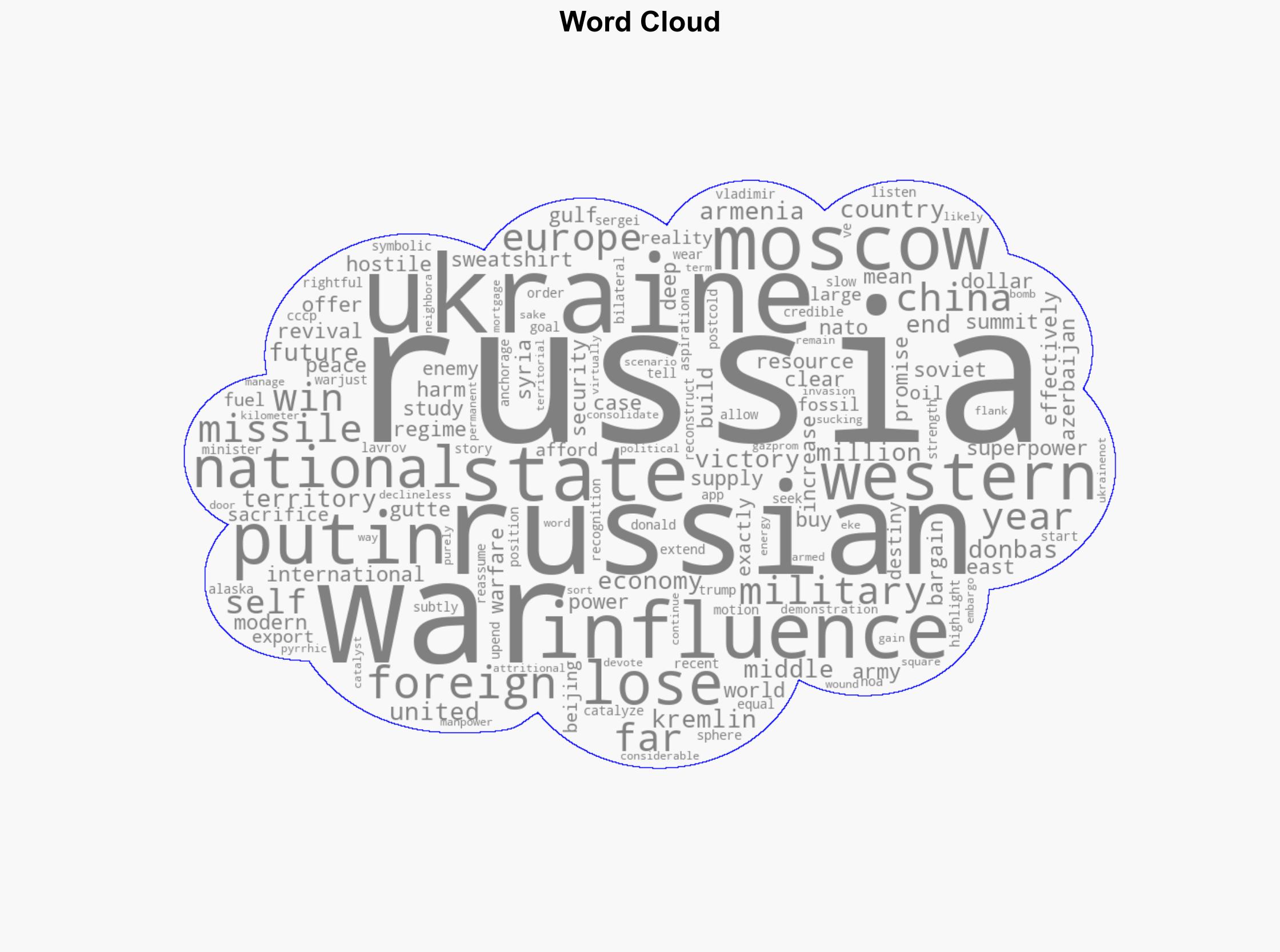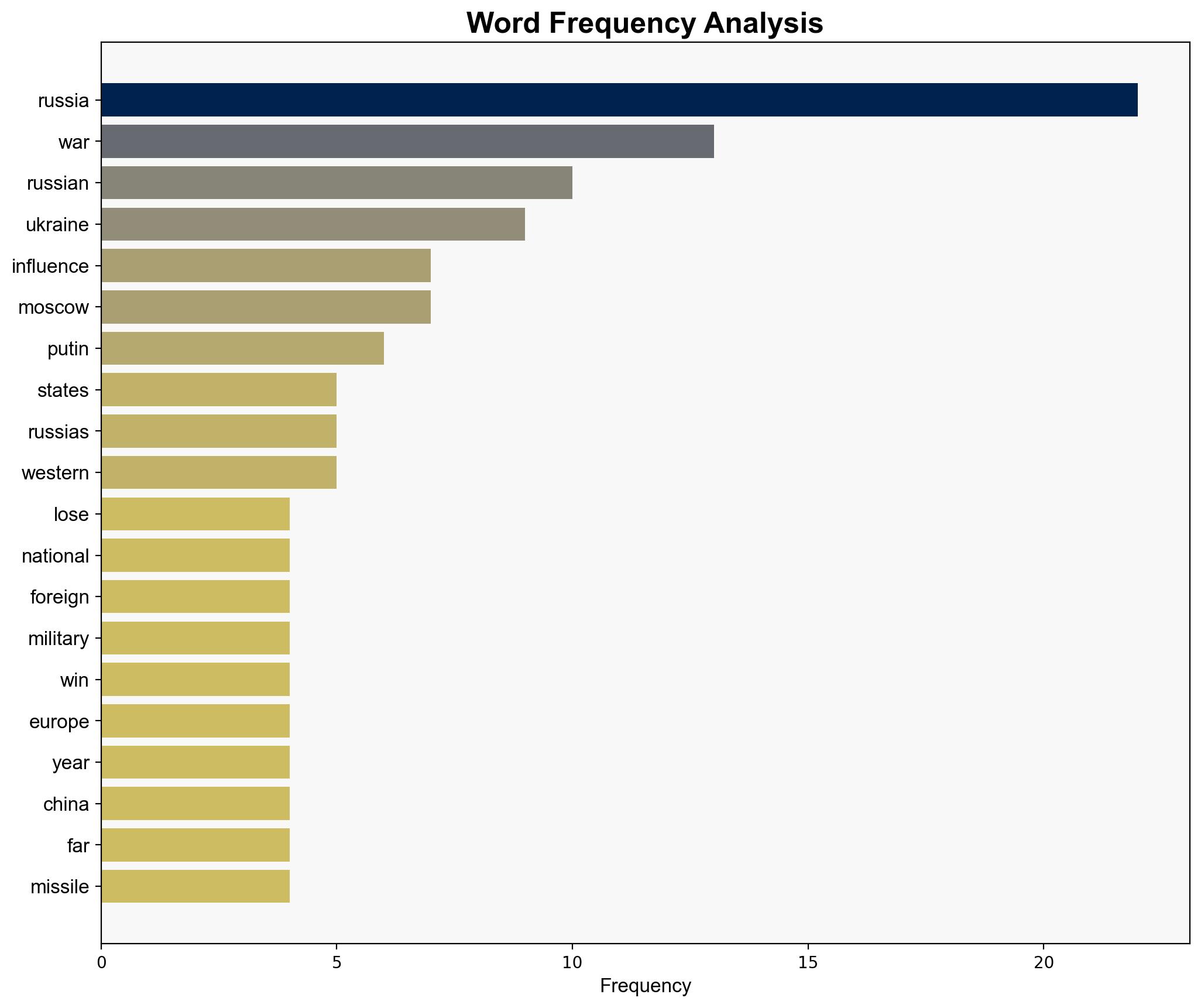Russia Is Losing the WarJust Not to Ukraine – The Atlantic
Published on: 2025-09-10
Intelligence Report: Russia Is Losing the WarJust Not to Ukraine – The Atlantic
1. BLUF (Bottom Line Up Front)
The most supported hypothesis is that Russia’s geopolitical influence is waning due to its military engagement in Ukraine, leading to strategic overextension and diminished global standing. Confidence level: Moderate. Recommended action: Monitor Russia’s military and economic strategies closely, while reinforcing alliances in Eastern Europe to counterbalance potential destabilization.
2. Competing Hypotheses
1. **Hypothesis A**: Russia’s involvement in Ukraine is causing a strategic overextension, leading to a decline in its global influence and economic stability. This is evidenced by its inability to project power effectively in other regions and the strain on its military resources.
2. **Hypothesis B**: Despite setbacks in Ukraine, Russia is using the conflict to consolidate its influence over its immediate neighbors and maintain a sphere of influence, albeit at a high cost. This hypothesis suggests that Russia might achieve a Pyrrhic victory, retaining some territorial gains and deterring NATO expansion.
3. Key Assumptions and Red Flags
– **Assumptions**: Hypothesis A assumes that Russia’s military and economic resources are finite and that its current strategy is unsustainable. Hypothesis B assumes that territorial gains and deterrence of NATO expansion are sufficient to maintain Russia’s influence.
– **Red Flags**: Potential cognitive bias includes overestimating the impact of military setbacks on Russia’s long-term strategy. Inconsistent data on Russia’s internal political stability and economic resilience could skew analysis.
4. Implications and Strategic Risks
– **Geopolitical**: Continued Russian aggression could lead to further NATO expansion and increased military spending by European states, altering the security landscape.
– **Economic**: Prolonged conflict may exacerbate Russia’s economic challenges, leading to domestic unrest and reduced global influence.
– **Cyber and Psychological**: Russia may increase cyber operations and disinformation campaigns to compensate for military shortcomings, posing risks to global cybersecurity.
5. Recommendations and Outlook
- Strengthen intelligence-sharing and defense cooperation with Eastern European allies to deter Russian aggression.
- Enhance cybersecurity measures to protect against potential Russian cyber operations.
- Scenario Projections:
- Best Case: Russia de-escalates, leading to a negotiated settlement and stabilization in Eastern Europe.
- Worst Case: Russia intensifies military efforts, prompting a broader regional conflict.
- Most Likely: Russia continues a protracted conflict with limited territorial gains, straining its resources and influence.
6. Key Individuals and Entities
– Vladimir Putin
– Sergei Lavrov
– Donald Trump
– Bashar al-Assad
7. Thematic Tags
national security threats, geopolitical strategy, military conflict, regional focus




